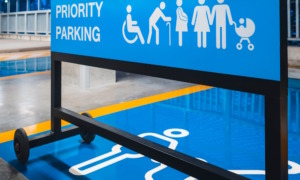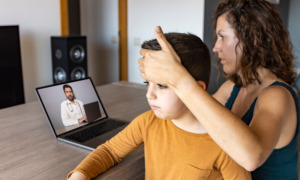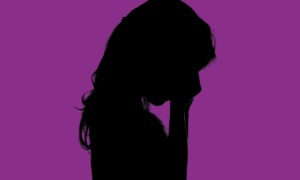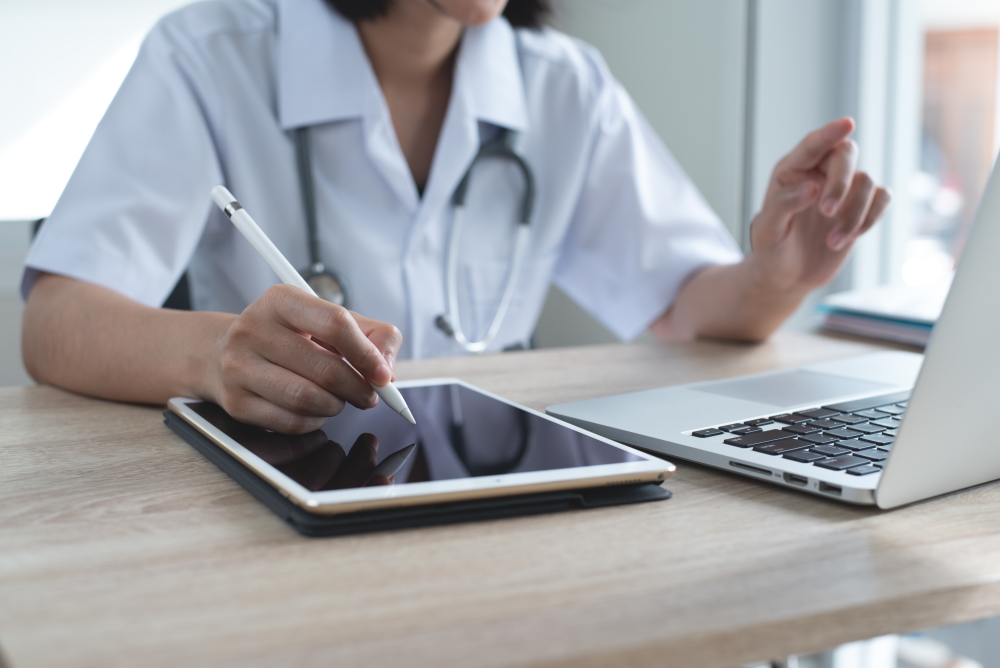 TIPPAPATT/SHUTTERSTOCK
TIPPAPATT/SHUTTERSTOCK
The need for social distancing has affected many aspects of our normal lives. As hospitals become overcrowded due to the influx of coronavirus patients, we find ourselves looking for alternate ways to get necessary medical attention. Since March, many doctors’ offices have turned to something called telemedicine, a medical consultation done through video chat.
With telemedicine, doctors can meet with patients, make diagnoses and prescribe medication just as they would in person. There are of course some downsides to this option. For example, many medical insurance companies do not cover these kinds of appointments. For youth with disabilities it can be convenient, but if it is not covered by insurance they will likely have to venture out to a doctor’s office, leaving them right back at square one — vulnerable to the virus.
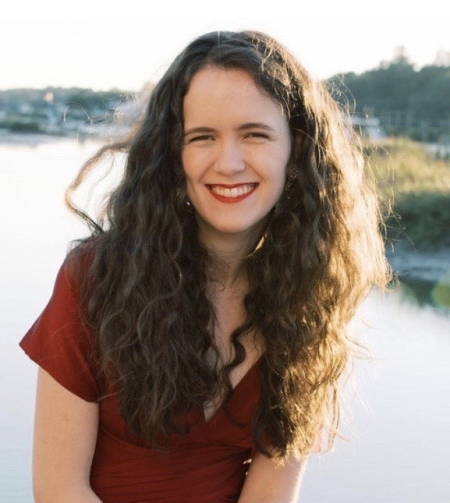
Ashley Harris Whaley
Ashley Harris Whaley, who is 28 and lives in Greenville, South Carolina, said her experience with routine medical appointments has been good throughout the pandemic. “I have been fortunate in that I have not had to seek medical care during the pandemic outside of routine appointments. My experience during these appointments was positive and I was very confident in the precautions that were taken to ensure patient safety,” she said.
Whaley is a disability advocate and online educator who lives with cerebral palsy. She does work through her website www.disabilityreframed.com and on Instagram to bring about awareness of disability. “I work to break down societal perceptions of disability through education and conversation,” she said.
On the other side of the globe in New Delhi, India, Srishti Pandey, 21, has had a different experience with seeking care. Like Whaley she has not had any emergencies during this time but her usual appointments have been disrupted.
“I haven’t yet [sought] any medical attention. Since I have a weak immune system, I have to be extra careful and I can’t go out and get some of my regular checkups done. And so, I’ve been missing out on them,” she said.
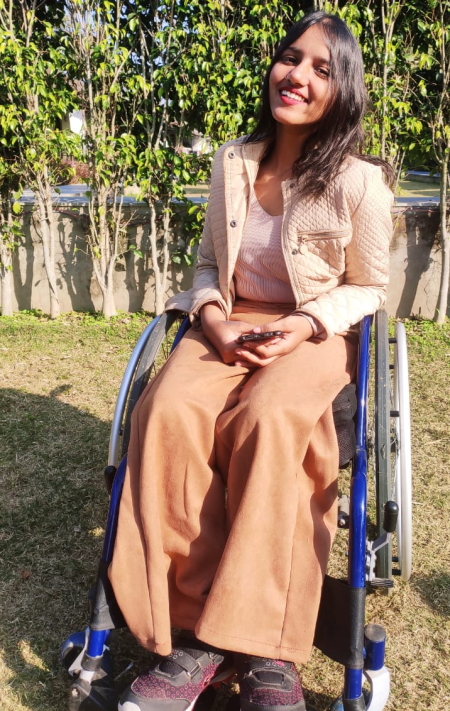
Srishti Pandey
Pandey has what is called locomotor disability in India, a condition where the movement of the limbs are restricted. She is an advocate for disability rights. COVID-19 has revealed the fact that ableism is real and that it continues to be an issue for the disabled community, she said.
“With the increase in the corona cases all over the world, the marginalization of the already marginalized communities [has] also increased,” she said.
“The already existing inaccessibility has only worsened with the pandemic. Since most of the public places are inaccessible, as a person with a disability I tend to rely a lot on random people. There are many instances when I need physical support and it makes me worry as to how my access needs [will] be met [with] social distancing and isolation,” Pandey said.
Although Americans are following guidelines to help prevent the spread of the coronavirus, mental health issues may arise as a result. Most of the people I have spoken to have mentioned how heavily the pandemic has weighed on their psyches.
“I would imagine that disabled youths have been impacted by the overall feeling of anxiety that has prevailed since the beginning of the pandemic,” Whaley said. “They have also been asked to be incredibly flexible and resilient throughout all the changes regarding school and in-person vs. online learning. It has also likely been difficult for them to maintain quality social relationships and a level of in-person interaction with peers and friends during periods of isolation due to the pandemic …”
Quality medical care is a major part of life for many disabled individuals. This pandemic has highlighted the pros and cons of the health care system. As we go forward and make adjustments, keep in mind that even within the disabled community, everyone has different needs and resources that those in the medical industry should look to accommodate as best they can.
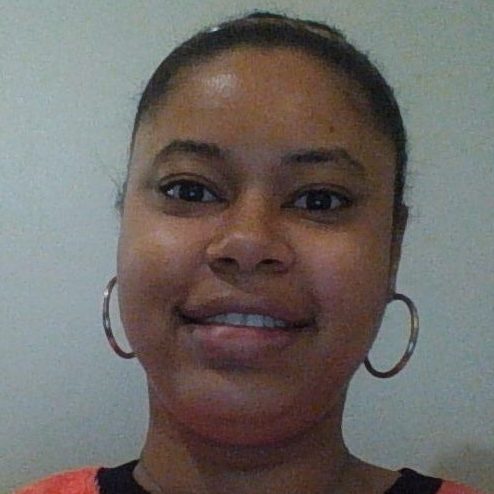
Deandra Mouzon
Deandra Mouzon is a Georgia-based journalist who received a B.A. in journalism from CUNY’s York College. Currently she is working on a publication about youth with disabilities.


